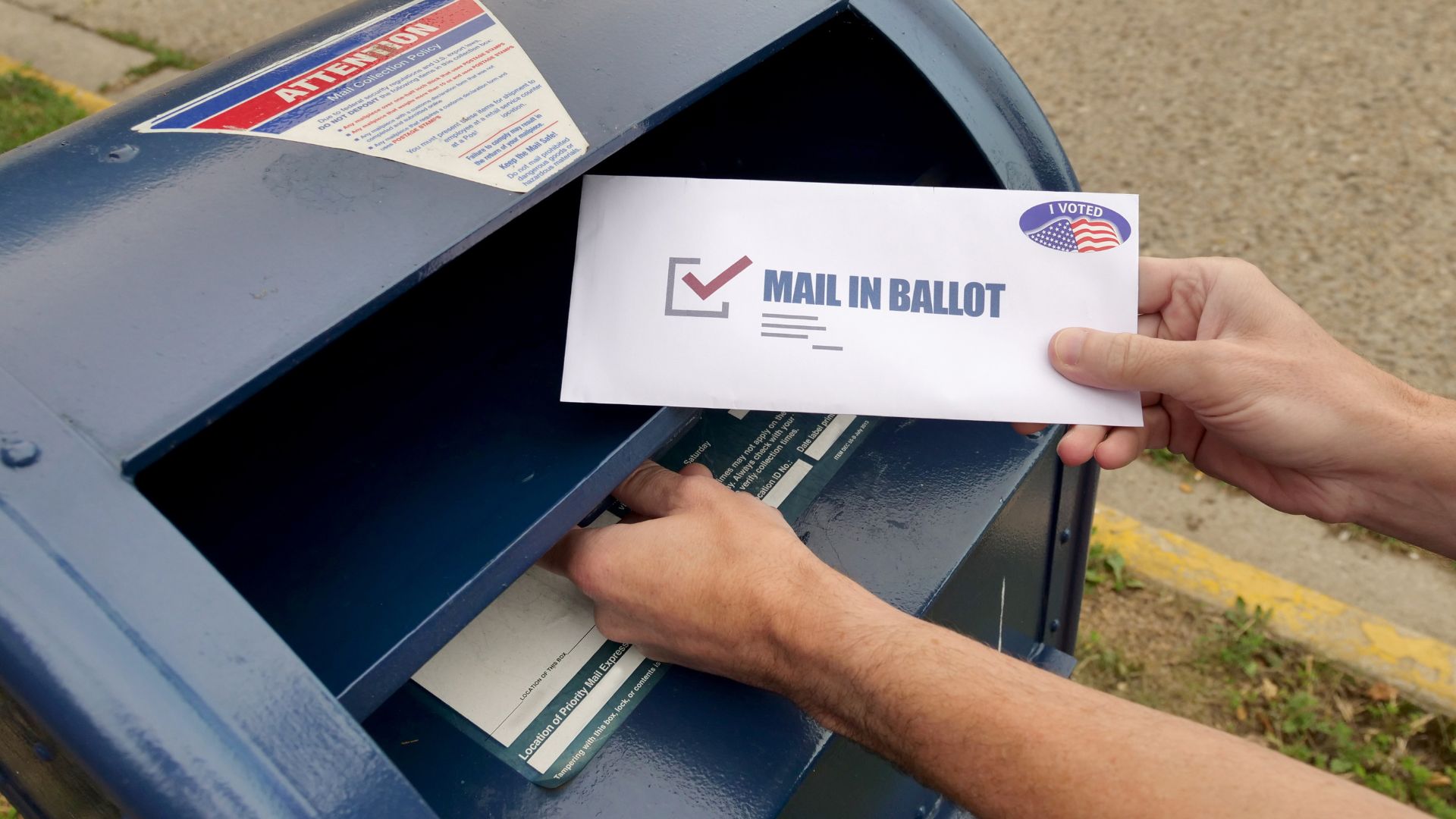
A federal appeals court on Monday upheld a Texas law requiring voters to provide identification when submitting mail-in ballots, reversing a lower court’s ruling that previously blocked the measure.
A three-judge panel on the U.S. Court of Appeals for the Fifth Circuit ruled unanimously that the Texas law does not violate the Civil Rights Act of 1964.
🚨JUST IN: A unanimous US 5th Circuit Court of Appeals panel has upheld Texas law requiring IDs for mail-in ballots.
Any mail-in ballots submitted without proper identification or a partial Social Security number will be REJECTED. pic.twitter.com/k7437bsjiF
— Election Wizard (@ElectionWiz) August 5, 2025
Trump’s Sovereign Wealth Fund: What Could It Mean For Your Money?
The panel emphasized that requiring ID numbers on mail-in ballots is a reasonable measure to verify voter identity and ensure election integrity.
“Mail-in ballots are not secure,” Judge James Ho wrote in the opinion.
“The ID number requirement is obviously designed to confirm that each mail-in ballot voter is precisely who he claims he is. And that is plainly ‘material’ to ‘determining whether such individual is qualified under State law to vote.’”
WIN: Not only are we holding the Texas Democrats gallivanting all over the country accountable, but we’re also stopping the far-left from stealing our elections with this MAJOR victory defending our voter ID laws.
Still not tired of winning. https://t.co/UEEiwpG6Zr
— Attorney General Ken Paxton (@KenPaxtonTX) August 5, 2025
This Could Be the Most Important Video Gun Owners Watch All Year
The opinion further stated that “mail-in ballot fraud is a significant threat,” reinforcing the court’s stance that verification measures serve a legitimate and necessary purpose under both federal and state election laws.
The case centers on Texas’ Election Integrity Protection Act of 2021, signed into law by Governor Greg Abbott in September 2021.
The law was part of a broader movement by Republican-led states to enhance election security following the 2020 presidential election.
Among other provisions, the Texas law added new ID requirements for voting by mail and placed restrictions on certain voting practices implemented by some counties during the 2020 cycle.
According to the Texas Tribune, the law also prohibited local election officials from offering expanded voting options beyond what the state law allows.
This includes banning measures such as drive-thru voting and 24-hour voting centers, which had been used in urban counties like Harris County during the 2020 election.
The Fifth Circuit’s ruling aligns with previous decisions by the same court, which has allowed for the tightening of election rules in Texas.
In one recent case, the Fifth Circuit ruled that mail-in ballots must arrive by Election Day in order to be counted, upholding a statutory deadline over objections from voting rights advocates.
In Monday’s decision, Judge Ho cited the court’s own precedents in defending the state’s approach to voter identification.
“Our precedents compel us to side with Texas,” Ho wrote.
“We have made clear that states have a legitimate interest in combating voter fraud, and thus enjoy ‘considerable discretion in deciding what is an adequate level of effectiveness to serve [their] important interests in voter integrity.’”
The ruling is likely to impact upcoming elections in Texas, as mail-in ballot procedures have become a point of contention between Republican lawmakers and voting rights groups.
Proponents of the law argue that identification requirements are essential to protecting against potential abuse and maintaining voter confidence.
Opponents claim such measures impose burdens on certain voters and may lead to ballot rejections.
The plaintiffs in the case had argued that requiring voters to provide a matching ID number—such as a driver’s license or Social Security number—on mail-in ballot applications and carrier envelopes amounted to a violation of the Civil Rights Act.
The lower court had agreed with this argument, but the appellate panel disagreed, concluding that the information required is material to determining a voter’s eligibility.
Texas officials defended the law throughout the legal process, citing its importance in ensuring that every vote is legitimate and that election procedures are consistent across all counties.
With the Fifth Circuit’s decision, the ID requirement remains in effect.
The ruling marks another legal win for Texas lawmakers who have prioritized election integrity legislation in the aftermath of the 2020 election.

![Federal Judges Rule Mail-In Ballot Fraud Is Real, Texas Law Stays [WATCH]](https://www.right2024.com/wp-content/uploads/2025/08/Federal-Judges-Rule-Mail-In-Ballot-Fraud-Is-Real-Texas-Law-750x375.jpg)



![ICE Arrests Illegal Alien Influencer During Her Livestream in Los Angeles: ‘You Bet We Did’ [WATCH]](https://www.right2024.com/wp-content/uploads/2025/08/ICE-Arrests-Illegal-Alien-Influencer-During-Her-Livestream-in-Los-350x250.jpg)
![Gavin Newsom Threatens to 'Punch These Sons of B*thces in the Mouth' [WATCH]](https://www.right2024.com/wp-content/uploads/2025/08/Gavin-Newsom-Threatens-to-Punch-These-Sons-of-Bthces-in-350x250.jpg)








